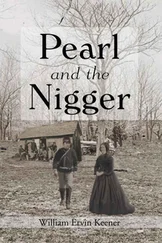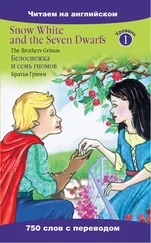William Tenn - Venus and the Seven Sexes
Здесь есть возможность читать онлайн «William Tenn - Venus and the Seven Sexes» весь текст электронной книги совершенно бесплатно (целиком полную версию без сокращений). В некоторых случаях можно слушать аудио, скачать через торрент в формате fb2 и присутствует краткое содержание. Год выпуска: 1949, Издательство: Avon, Жанр: Юмористическая проза, на английском языке. Описание произведения, (предисловие) а так же отзывы посетителей доступны на портале библиотеки ЛибКат.
- Название:Venus and the Seven Sexes
- Автор:
- Издательство:Avon
- Жанр:
- Год:1949
- ISBN:нет данных
- Рейтинг книги:5 / 5. Голосов: 1
-
Избранное:Добавить в избранное
- Отзывы:
-
Ваша оценка:
- 100
- 1
- 2
- 3
- 4
- 5
Venus and the Seven Sexes: краткое содержание, описание и аннотация
Предлагаем к чтению аннотацию, описание, краткое содержание или предисловие (зависит от того, что написал сам автор книги «Venus and the Seven Sexes»). Если вы не нашли необходимую информацию о книге — напишите в комментариях, мы постараемся отыскать её.
Venus and the Seven Sexes — читать онлайн бесплатно полную книгу (весь текст) целиком
Ниже представлен текст книги, разбитый по страницам. Система сохранения места последней прочитанной страницы, позволяет с удобством читать онлайн бесплатно книгу «Venus and the Seven Sexes», без необходимости каждый раз заново искать на чём Вы остановились. Поставьте закладку, и сможете в любой момент перейти на страницу, на которой закончили чтение.
Интервал:
Закладка:
Before I could communicate with my srob, however—he always swam a good distance from land during the Season of Wind-Driven Rains—the tkan tkann flew to inform me of the sex-chiefs’ choices and lead me to them. I regretfully postponed the initiation of offspring.
The Plookhh selected by the Beauty Contests were the very glory of our race. Each was differentiated from the other members of his sex by scores of characteristics. United in one family, they might well have produced Superplookhh.
With infinite graciousness, the tkan tkann told me that I had been considered most seriously for the nzred protagonist—only, my value as Shlestertrap’s assistant being primary, another was selected in my place. “No matter,” I told the chief as he soared away, “I have honors enough for one Plookh: my books runneth over.”
The gasping srob represented the greatest problem and the tkan-character volunteered to fly him directly to the dome without waiting for the rest of us so that the finny one would not dry up and die. Then, with the nzred-character and the blap-character carrying the plant-like guur between them, we began our ascent of the tenth highest mountain.
Although the Season of Wind-Driven Rains was almost over, there were even more great spotted snakes than before crawling upon the dome; and, grappling with their morbid coils, were more slavering dodles than I remembered seeing at one time; even a few brinosaur ranged about now, in anticipation of the approaching Season of Early Floods. I deduced, in some surprise, that they considered the human a palatable substitute for Plookhh.
I had gone ahead of my little band since I knew the terrain better and was more likely to attract Hogan Shlestertrap’s attention. This was fortunate, for we had not worked halfway up the mountain before we were feverishly eluding what seemed to be the entire fauna of Venus. They poured off the dome in a great snapping, salivating horde, pausing occasionally to gouge or tear at their neighbors, but nonetheless pursuing us with a distressing concentration. I found additional cause to be grateful for the wise choices of the sex-chiefs: only really diversified Plookhh with the very latest survival characteristics could have come through that madness of frustrated gluttony unscathed. Relatively unscathed.
It was only necessary for me to cross once in front of the robot in the outer compartment of the dome. Gridnik-fast, the beam poured out and captured me, swinging thence to the rest of my elite family and carrying all of us through the open space of the dome which seemed to be materializing shut almost before we were inside.
I was particularly grateful, I recall, since the beam had snatched me from between the creepers of the largest sucking ivy I had ever stumbled upon. A helical tentacle is all very well, but it does not help over-much when one is too busy evading three lizard-birds to notice what lies in wait upon the ground.
One of the robots had already constructed a special tank for the srob, and he also rapidly found some soil into which the guur could root sighingly.
“That a real plant?” Shlestertrap inquired. He had changed from his previous covering into a black garment becomingly decorated with red splotches which disguised his dome-shaped middle protuberance in a way I could not quite fathom. On his head, he now wore what he called a cap with the visor pointing behind him—a custom, he explained, which was observed by stereo people in deference to their ancient greats.
“No, it is a guur, the Plookh which relies most on blending into its surroundings. Although it does derive some nourishment photosynthetically, it is not quite a vegetable, retaining enough mobility to—”
“A guur, you call it? Helpless, huh? Got to be carried over the threshold? Keep still—I’m thinking!”
I throbbed out a translation. We all froze into silence. The srob, who had lifted his head out of the tank to survey the dome, began to strangle quietly in the open air.
Finally, Shlestertrap nodded and we all moved again. The mlenb flapped over and pushed the srob, who had become insensible, back under the surface of the tank.
“Yep,” said our civilizer. “It adds up. I have the weenie. A little too pat for an artistic stereo, but I can always dress it up so no one will know the difference.” He turned to me. “That’s the big gimmick in this business—dressing it up so they can’t tell it’s the same thing they’ve been seeing since they got their first universal vaccination. If you dress it up enough, the sticks will always go nuts over it. Maybe the critics will make cracks, sure, but who reads the critics?”
Alas, I did not know.
Much time passed before I had extended conversation with the human again. First, it was necessary for me to teach English to the first Plookh thespians so that they could follow Shlestertrap’s direction. Not very difficult, this: it simply required a short period of concentrated griggoing by the seven of them. I could now give them much terminology that even my ancestor, nzred fanobrel, had not been able to use; unfortunately, a good deal of Shlestertrap’s phrase-shadings remained as nothing but unguessable semantic goals, and when it came to many attitudes and implements used exclusively upon Earth—we could do nothing but throw up our tentacles and flippers, our vines and talons, in utter helplessness.
Some day, however—not us, but one of our conceivable descendants, perhaps—we will learn the exact constituents of a “thingumajig.”
After learning the language, the other Plookhh were taken in charge by the robots—the same friendly creatures who would leave the dome occasionally to forage the fresh pink weeds that were essential to our diet—and told to do many incomprehensible things against backgrounds that varied from the artificially constructed to the projected stereo.
Frequently, Shlestertrap would halt the robots in their fluid activity with booms and cameras and lights, turn to me and demand a significant bit of information about our habits that usually required my remembering every page of all our Books of Numbers to give an adequate reply.
Before I could finish, however, he generally signaled to the robots to begin once more—muttering to himself something like: “Oh, well, we can fake up a fair copy with more process work. If it only looks good, who cares about realism?”
Then again, he would express annoyance over the fact that, while some of us had heads, the mlenbb and nzredd had torso-enclosed brains, and the guur were the proud possessors of what the first ship’s biologists had called a “dissolved nervous system.”
“How can you get intriguing close-ups,” Shlestertrap wailed, “when you don’t know what part of the animal you want in them? You’d think these characters would get together and decide what they want to look like, instead of shortening my life with complications!”
“These are the most thoroughly differentiated Plookhh,” I reminded him proudly. “The beauty contest winners.”
“Yeah. I’ll bet the homely ones are a real old-fashioned treat.”
Thus, gently and generously, did he toil on the process of civilizing us. May his name be revered by any Plookhh that survive!
My only real difficulty was in gaining more knowledge. The robots were rather uncommunicative (we have not yet resolved their exact place in human affairs) and Hogan Shlestertrap explained that a genius like himself could not be bothered with the minutiae of stereographical mechanics. That was left entirely to his metallic assistants.
Nevertheless, I persisted. My hunted race, I felt, expected me to gather all knowledge to which I was exposed for the building of our own technology. I asked Shlestertrap detailed questions about the operations of the sound robot who deftly maneuvered the writhing, almost-live microphone booms above the actors and scenery; I pestered him for facts on the great smell-camera with its peculiar, shimmering olfactory lens and its dials calibrated pungently from rose-constants to hydrogen-sulphide-constants.
Читать дальшеИнтервал:
Закладка:
Похожие книги на «Venus and the Seven Sexes»
Представляем Вашему вниманию похожие книги на «Venus and the Seven Sexes» списком для выбора. Мы отобрали схожую по названию и смыслу литературу в надежде предоставить читателям больше вариантов отыскать новые, интересные, ещё непрочитанные произведения.
Обсуждение, отзывы о книге «Venus and the Seven Sexes» и просто собственные мнения читателей. Оставьте ваши комментарии, напишите, что Вы думаете о произведении, его смысле или главных героях. Укажите что конкретно понравилось, а что нет, и почему Вы так считаете.












